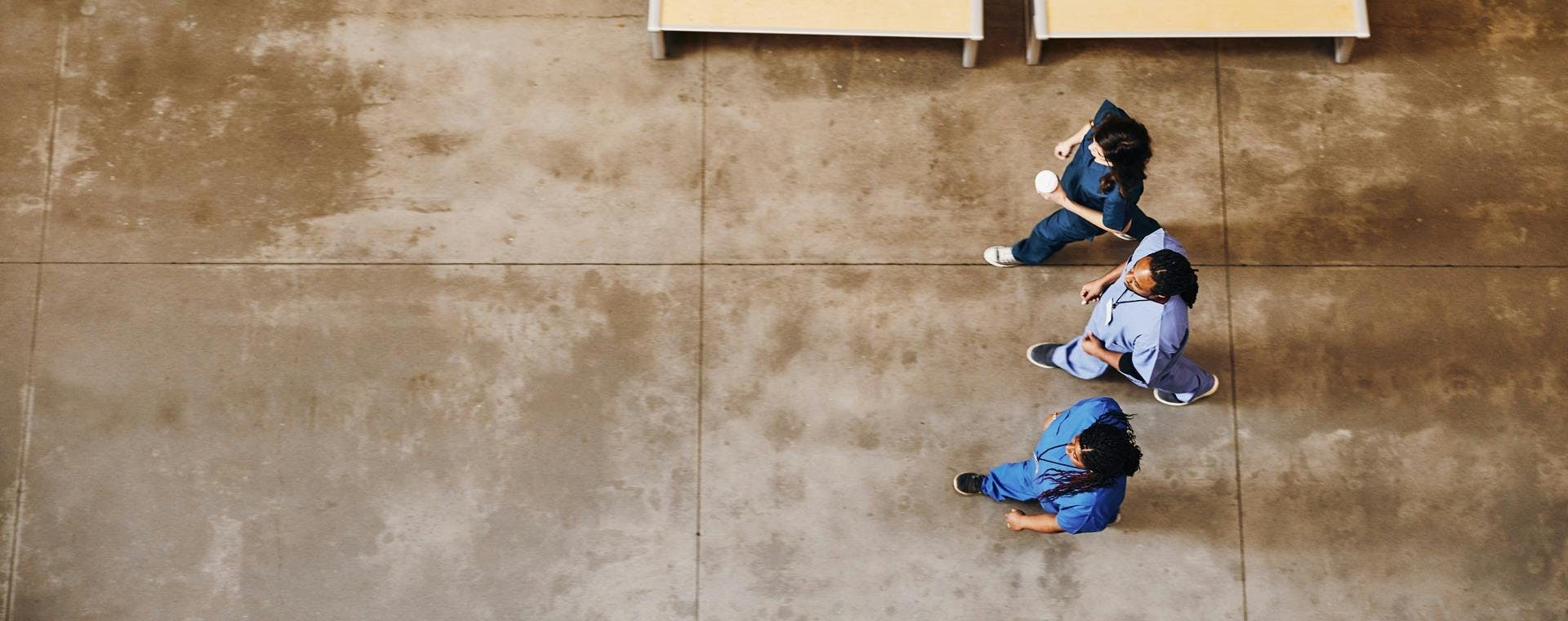Stillbirth compensation claims

We recognise a is a traumatic experience, especially if you feel that it could have been avoided. Specialist legal advice can help you investigate what happened.
At Switalskis, our aim is to help families navigate this intensely difficult time by providing them with a compassionate approach to legal advice. Our dedicated team of solicitors specialises in compensation claims, bringing with them a wealth of knowledge and a deep understanding of the complexities and sensitivities involved in these cases.
We realise that no amount of compensation can make up for the loss of your baby. However, a successful claim can provide resources for bereavement support and financial stability if your ability to work has been affected. In some cases, a defendant may commit to providing better care in the future.
If you believe that your was a result of clinical negligence, don't hesitate to reach out to us. Our expert medical negligence solicitors are prepared to listen, advise and stand by you through each step of the process.
Call Switalskis today on 0800 1380 458, or contact us through the website.

At Switalskis, we don't just offer legal advice; we offer a helping hand. Our experienced team has helped countless families. As such, we have an in-depth understanding of what such investigations involve. We aim to provide holistic legal advice and compassionate support
With Switalskis, you can put your trust in a team of medical negligence solicitors with many years of experience. Our team includes solicitors who are accredited as specialists by the Law Society and the patient charity Action against Medical Accidents (AvMA) . We’re also recognised as being among the top clinical negligence teams in England by the Legal 500 UK, the foremost legal guide for clients.
When you work with us, we promise to do the following for you:
Your loss is deeply personal, and so is our approach. With Switalskis, you're not just another case; you're a family in need, and we're here to help.
is a term used to describe the heartbreaking situation when a baby is born without signs of life, after 24 weeks of pregnancy - before this point, the loss of a pregnancy is typically referred to as a miscarriage, as hard as it is to hear those terms.
Stillbirths can happen for a variety of reasons and it's often challenging to pinpoint an exact cause. However, several known factors can play a role:
This is why it is important to carefully monitor both mother and baby through pregnancy, labour and delivery to identify any signs that mean the mother and baby need additional care or the baby needs to be delivered earlier than anticipated.
If your baby is stillborn and you have concerns about the care you received during your pregnancy or birth, Switalskis will explore your situation and advise on possible next steps.
To make a compensation claim, you'll need to be able to prove that medical negligence played a part in the tragic loss of your baby. A medical negligence claim regarding a can generally be pursued if you can establish that:
Any investigation requires a careful examination of your medical records and will rely on expert opinions from medical professionals. Switalskis will handle this whole process for you, and help you understand the evidence at every stage.
Making a compensation claim can be complicated and emotionally trying, but it's easier when you have an experienced medical negligence team by your side. Here's an overview of how it works:
We’ll talk with you to understand your unique situation and discuss the circumstances surrounding the loss of your baby, the medical care provided, and the impact it has had on you. This session allows us to gather the necessary information to determine what to investigate further.
We’ll thoroughly investigate the medical care and any potential lapses that could have contributed to the stillbirth. We will acquire and review medical records, seek opinions from medical experts, and examine the standard of care provided. The evidence needs to establish if the was a consequence of medical negligence and determine the possible value of your claim.
When we've gathered enough evidence, if it supports the legal tests, we'll draft and send a letter of claim to the defendant. This document details the claim and supporting evidence. The defendant will then have a period of time to conduct their investigations to decide on whether they admit liability.
If the defendant admits liability, negotiations will begin. Our expert medical negligence solicitors will negotiate diligently on your behalf, using our extensive knowledge and experience to secure compensation for you.
Most claims are resolved through negotiation, leading to a fair settlement without the need for court proceedings. However, on rare occasions, it might be necessary to take your claim to court. Should this be the case with your claim, we pledge to support you at each step, providing clear advice and support.
If your claim is successful, you'll receive compensation. We recognise that no amount of money can compensate you for your loss, compensation can provide financial support, replace lost earnings and cover the cost of counselling, therapy and other support services that can help you.
This process can be challenging, but we're here to navigate this journey with you, every step of the way.
At Switalskis, we firmly believe that financial concerns should never be a barrier to justice. That’s why we offer various funding options for medical negligence cases, making the process as accessible and straightforward as possible. These include:
We'll always provide complete transparency around costs and funding options, allowing you to focus on what truly matters: securing the best possible outcome in your case.

Compensation amounts can vary significantly. They are calculated on a case-by-case basis and depend on the unique circumstances in each claim. This means there isn't a fixed compensation amount - if you want more information, it’s best to chat with us about the specifics of your case.
In compensation claims, all of the following will be taken into account to calculate the total amount you receive:
Our dedicated solicitors will help you understand what you might be able to claim and guide you through each step of the process.
It's important to be aware of the time limits in place for making a claim. Typically, you'll have three years from the date the negligence occurred, or the date when you first became aware of the negligence. This is referred to as the ‘limitation period’.
However, exceptions do apply. For instance, if the mother was under 18 at the time of the stillbirth, the three-year limit won't start until her 18th birthday. Also, if the mother cannot manage her own affairs due to mental incapacity, the three-year time limit doesn't apply.
Even with these guidelines in place, we encourage you to reach out to us sooner rather than later. This is because gathering evidence and information will be more straightforward when memories are fresh and medical records are more readily available. Additionally, by starting the case as soon as possible, you can make sure that no deadlines are missed.
Contact us today and let's start your journey towards recovery together. Call us today on 0800 1380 458, or get in touch via our form.
Navigating a compensation claim can be a challenging journey, both emotionally and legally. It's critical to choose the right legal partner to walk you through this process. The team of medical negligence experts at Switalskis is here to help.
Here are the values that we promise to uphold when assisting with your compensation claim:
Medical negligence claims, including cases, can be complex, but we’re committed to making them simpler for you. We’ll always make sure we translate complex legal jargon into clear, understandable language, and will be available to answer your questions and clear up any confusion throughout the process.
Every family’s experience is unique, and we’ll acknowledge and respect this fact throughout the claims process. We lend an empathetic ear to your concerns and provide thoughtful, personalised advice that's tailored to your specific case. You're not just a client to us - you and your family are facing a difficult time, and we aim to support you as best we can.
When navigating a complicated and potentially lengthy claim, you can trust the expertise and experience at Switalskis. Our longstanding experience and proven success in securing compensation for families like yours should give you confidence that we can achieve the best possible outcome for your family.
Switalskis is committed to advocating for you and ensuring your voice is heard. Not only will we investigate the medical cause and do our best to to provide you with answers, we will help you claim compensation to support you in the future.
Making a claim for medical negligence is based upon two essential grounds:
A is a deeply traumatic event and, sadly, some women are at higher risk than others of experiencing it. It's important to remember that having one or more risk factors doesn't necessarily mean a will occur, but it may increase the likelihood, and that is something medical professionals should keep in mind when providing care. Here are some of the most common examples:
In some cases, the cause of a remains unknown despite thorough investigation. However, if the cause can be identified, it can be helpful in establishing whether anything could have been done to prevent it.
Medical professionals have a duty of care to patients. These responsibilities require them to provide care to a reasonable standard for both mother and child at all stages of the pregnancy, labour and delivery.
If you believe that a medical professional didn’t fulfil their responsibilities and this failure led to a stillbirth, speak to the medical negligence experts at Switalskis about claiming compensation.
Stillbirths and deaths are equally tragic events that refer to slightly different medical outcomes:
At Switalskis, we approach each case with utmost sensitivity and respect, offering guidance and support during difficult times. If you believe your loss was due to medical negligence, we're here to help and ensure your claim is handled professionally and compassionately.
medical negligence cases can be extremely complex and distressing for the families involved. This is why it’s vital to be able to rely on experienced medical negligence solicitors, who will provide compassionate legal advice at every stage of the claims process.
Get in touch with Switalskis today, and we’ll make it easy for you to claim compensation and provide for your family's future. Call 0800 1380 458 to discuss your medical negligence case, or contact us through the website to arrange your free initial consultation.